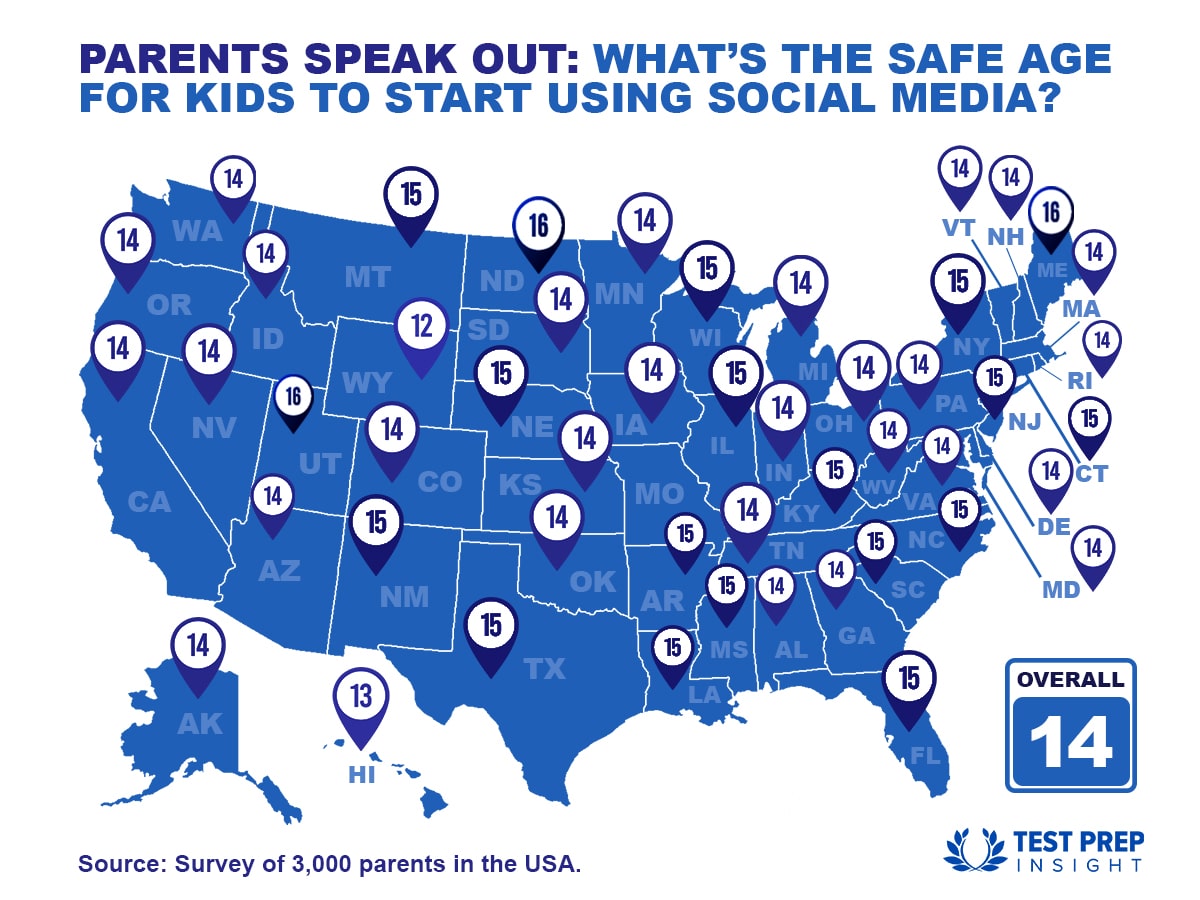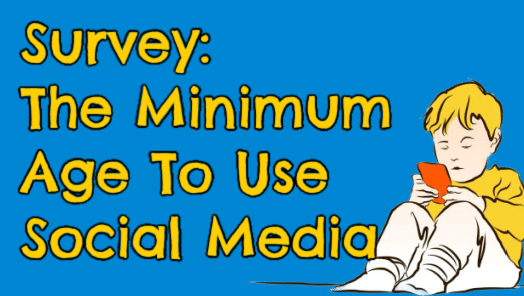
Key Insights:
The Majority Consensus on Age 14
Most states agree: age 14 is when children are generally ready to navigate social media.
This consensus suggests that age 14 could become a widely accepted national baseline for social media readiness, especially if legislation begins to reflect this common ground.
Stricter Stances in the Northeast and Midwest
In states like Maine, Utah, and North Dakota, many parents prefer setting the minimum age at 16, showing a more cautious approach.
In these areas, it’s likely that cultural factors, local policy initiatives, or community concerns about the impact of social media have influenced parents’ views.
This trend may reflect broader protective attitudes prevalent in these regions.
Variation Across Neighboring States
Even neighboring states differ. In Arkansas, parents lean toward age 15, while in nearby Oklahoma, 14 is seen as sufficient.
This variation might point to subtle cultural or policy differences between states, even among close neighbors, underscoring the localized nature of parental attitudes.
A Stronger Call for Delay in the South
In Southern states like Mississippi, Louisiana, and Kentucky, many parents support setting the minimum age at 15.
This trend may stem from traditional or conservative values in these areas, where there may be a preference for delaying social media access to protect children from potential online harms.
It highlights a regional pattern where parents appear to favor a cautious approach.
Legal Hurdles Reflect Complexities in Policy Making
States like California and Utah have encountered legal challenges that have stalled or blocked aspects of their social media regulations for minors.
This tension between policy-making and judicial review underscores the complexity of balancing children’s online safety with individual rights—a challenge that resonates with the 83% of surveyed parents who advocate for more stringent penalties on social media companies that fail to enforce age restrictions.
Methodology
We conducted an online survey with 3,000 parents, using stratified sampling and weighting to ensure the results represent the broader population.
Respondents are carefully chosen from a geographically representative online panel of double opt-in members. This selection is further tailored to meet the precise criteria required for each unique survey. Throughout the survey, we design questions to carefully screen and authenticate respondents, guaranteeing the alignment of the survey with the ideal participants.
To ensure the integrity of our data collection, we employ an array of data quality methods. Alongside conventional measures like digital fingerprinting, bot checks, geo-verification, and speeding detection, etc. each response undergoes a thorough review by a dedicated team member to ensure quality and contextual accuracy. Our commitment extends to open-ended responses, subjecting them to scrutiny for gibberish answers and plagiarism detection.

